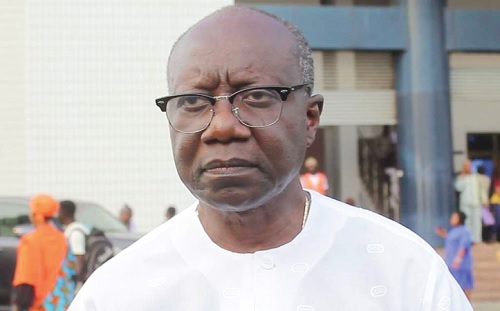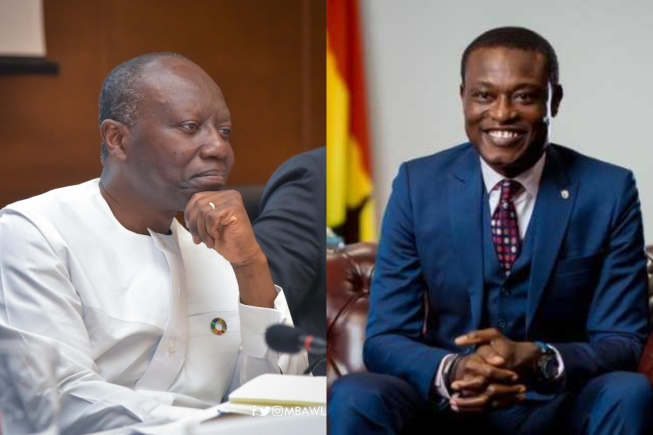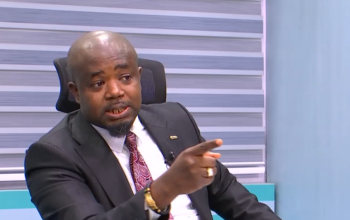The Office of the Special Prosecutor (OSP) has criticized former Finance Minister Ken Ofori-Atta for what it describes as bad faith and a lack of cooperation in an ongoing investigation. This comes amid a growing number of high-profile corruption and financial crime cases drawing national attention.
Speaking to journalists in Accra on Monday, June 2, Special Prosecutor Kissi Agyebeng disclosed that Ofori-Atta has failed to submit a medical report to the OSP, despite repeated assurances from his legal team. “From January 24 till now, Mr. Ofori-Atta has not produced any medical report,” Agyebeng stated. “From March to May, he said he was going to have a surgical operation… After accommodating him, he never bothered to tell the OSP that there had been a fundamental change in his condition.”
Samuel Appiah Darko, Director of Strategy, Research, and Communication at the OSP, reiterated that no such documentation has been received, contradicting public claims made by Ofori-Atta’s legal representatives.
The OSP’s growing frustration signals that legal tolerance is wearing thin. Agyebeng made it clear that the office considers the former minister’s conduct as evasive and inconsistent with the expectations of someone under official investigation.
This development follows the release of another high-profile figure—NPP Ashanti Regional Chairman Bernard Antwi Boasiako (Chairman Wontumi)—who was granted bail on June 2 after nearly a week in detention over allegations including fraud and potential links to an international organized crime network.
Together, these cases highlight what appears to be a new era of intensified legal scrutiny targeting powerful political and business figures in Ghana. The Office of the Special Prosecutor (OSP) has issued a scathing public rebuke of former Finance Minister Ken Ofori-Atta, accusing him of deliberately evading investigative processes and acting in bad faith.
Speaking at a press briefing in Accra on Monday, June 2, Special Prosecutor Kissi Agyebeng revealed that despite repeated claims by Mr. Ofori-Atta’s legal representatives, no medical report has been submitted to the OSP since he was first contacted on January 24, 2025. Ofori-Atta’s lawyers had indicated that he would undergo a surgical procedure in March and cited health concerns—including a reported battle with cancer—as reasons for his non-appearance.
“From January 24 till now, Mr. Ofori-Atta has not produced any medical report. From March to May, he said he was going to have a surgical operation… After accommodating him, he never bothered to tell the OSP that there had been a fundamental change in his condition,” Agyebeng stated.
The Director of the Strategy, Research and Communication Division at the OSP, Samuel Appiah Darko, also confirmed that the office had received no supporting medical documentation, directly contradicting public statements made by the former minister’s legal team.
The tipping point appears to have been a letter from Mr. Ofori-Atta’s lawyers, dated May 28, 2025, which the OSP has condemned in strong terms.
“Therefore, the OSP views Mr. Ofori-Atta’s lawyers’ letter dated 28 May 2025 as an expression of utter bad faith on the part of Mr. Ofori-Atta,” said Agyebeng. “It confirms our long-held, well-considered opinion and conclusion that Mr. Ofori-Atta has no intention of voluntarily returning to the jurisdiction and to attend the OSP.”
The OSP’s public stance suggests that further legal action may be imminent, especially as the office’s patience appears to have run out.
This latest development comes at a time of intensified legal scrutiny of high-profile figures, including NPP’s Ashanti Regional Chairman Bernard Antwi Boasiako (Chairman Wontumi), who was released on bail earlier this week following allegations of fraud and potential links to international organised crime.
Together, the Wontumi and Ofori-Atta cases underscore a broader anti-corruption push by the OSP, though critics and supporters alike are watching closely to see how these politically sensitive investigations unfold. The Office of the Special Prosecutor (OSP) has reinstated former Finance Minister Ken Ofori-Atta on its list of wanted persons, citing his continued failure to submit credible medical documentation justifying his absence from Ghana and his refusal to cooperate with the office’s investigation.
Speaking on The AM Show on JoyNews on Tuesday, June 3, Samuel Appiah Darko, Director of Strategy, Research and Communication at the OSP, dismissed claims made by Ofori-Atta’s legal team that a medical report had been submitted. “What is happening here is that a suspect—Ken Ofori-Atta—said that he is sick and cannot come. Now the difficulty is this: the suspect has not provided any medical report. I heard the lawyers of the former minister saying that there is a medical report—please, it is not true,” Mr. Darko clarified.
He further stated that the OSP’s inability to verify any medical treatment being undertaken abroad by Mr. Ofori-Atta was the primary reason for reinstating him on the wanted list. This move follows mounting frustration within the OSP over what it considers deliberate delays and evasive tactics by the former minister.
Special Prosecutor Kissi Agyebeng had previously described a letter from Mr. Ofori-Atta’s lawyers dated May 28 as “an expression of utter bad faith,” confirming what he described as a “long-held, well-considered conclusion that Mr. Ofori-Atta has no intention of voluntarily returning to the jurisdiction and attending the OSP.”
The former minister’s legal team had cited cancer treatment abroad as the reason for his absence and lack of engagement, but the OSP insists that no verifiable proof—such as medical records or hospital correspondence—has been submitted to support that claim.
The case has now escalated into a high-profile standoff between one of Ghana’s most powerful former ministers and the country’s top anti-corruption watchdog, raising broader concerns about accountability, legal transparency, and the enforcement of justice.
This follows closely on the heels of another politically charged case involving NPP Ashanti Regional Chairman Bernard Antwi Boasiako (Chairman Wontumi), who was recently released on GH₵50 million bail amid allegations of fraud, money laundering, and potential connections to international organized crime.
With both cases unfolding simultaneously, public and political attention remains sharply focused on how Ghana’s institutions handle alleged misconduct at the highest levels of power.
Anita FrimpomaaeditorEdit Profile










